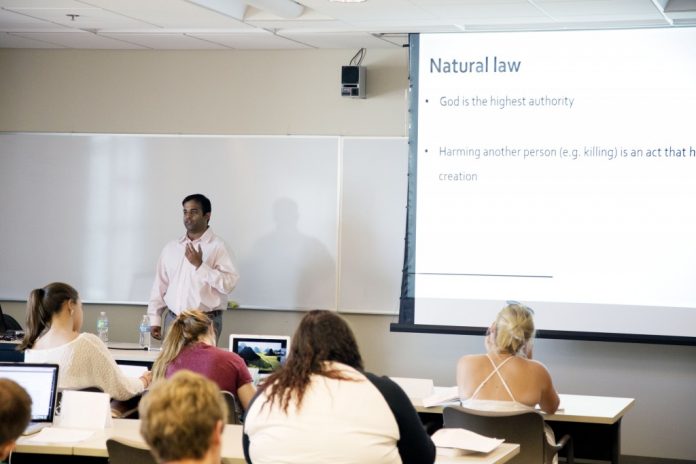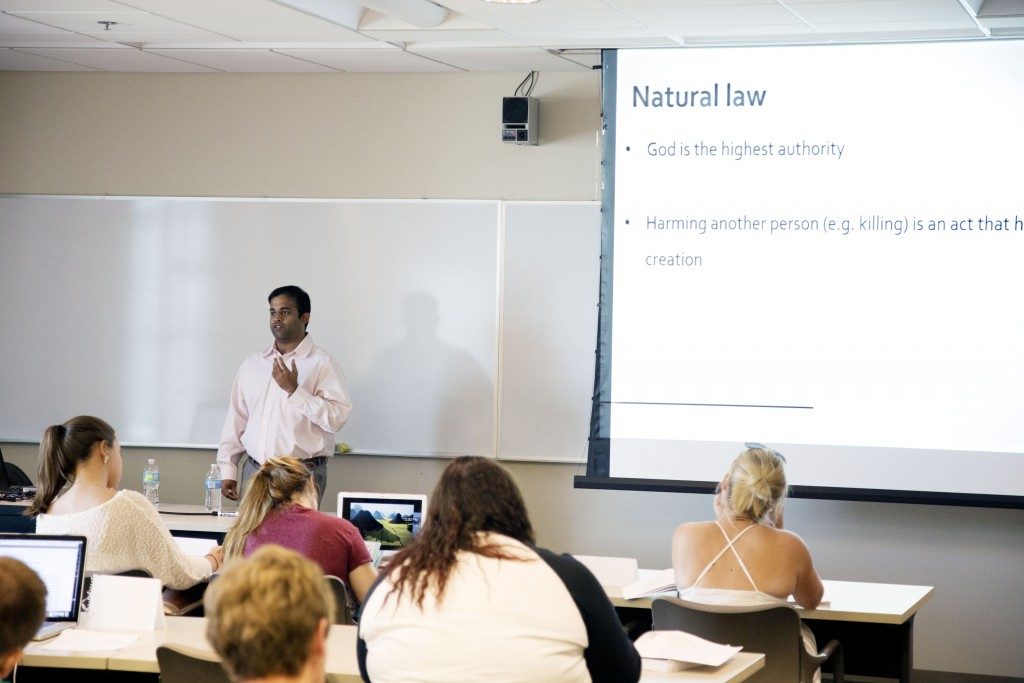

Privledge Power and Diversity requierment. GERALD PINEDA / THE DEPAUW
The Class of 2019 was required to learn math, science and English. The Class of 2020 is required to learn about international experience, power, privilege and diversity as well.
To complete the new requirements, new students will need to take one PPD course and one IE course during their first two years at DePauw. Courses from a wide variety of subject areas can fulfill each requirement. Anything from music to anthropology can count towards the PPD requirement, while anything from modern languages to religion can apply to the IE requirement.
Vice President of Academic Affairs, Anne Harris, said there have been conversations about having such programs put in place for close to ten years.
“It really culminated in the spring of 2015,” Harris said. “And here’s what I think is really fascinating, is that it’s a student initiative.” Many conversations between students, faculty and staff took place on campus in the spring of 2014 about diversity, inclusion and interactions at DePauw. Ultimately, the decision came down to a commitment to make DePauw an inclusive space.
“So it’s not just a kind of goodwill thing—yes, let’s all be inclusive—but we really do some work as a community in our classrooms that looks at what it takes to be diverse and what it takes to be inclusive,” said Harris.
Both new requirements were put to a vote at the May 2015 faculty meeting, the last meeting of that year, and both were passed.
Along with the faculty vote, the International Experience requirement was the result of a grant called Global Crossroads, through the Great Lakes Colleges Association.
“That grant was stewarded by David Alvarez of the English department,” Harris said, “and he’s been lining up all sorts of course and grant opportunities for faculty members. This is expanding on our global health initiative, on all sorts of international teaching.”
Once the faculty voted to put the new requirements into place, there was one year of planning. This preparation period included a speaker series on American whiteness in Fall 2015 and a weeklong PPD workshop in May 2016.
According to Harris, there was “lots of attendance from the faculty, lots of participation across departments— really really encouraging.”
One of the faculty members who helped organize the PPD workshop in May was Professor of Classical Studies, James Wells. “I just felt like I needed to play a role in helping to promote change in campus climate,” Wells said.
Wells said the workshop sought to teach the faculty who participated, strategies and pedagogy to help them teach PPD courses. “There were tense moments. It was an experiential learning process for the people in that workshop, for many of them. And that meant people were vulnerable at times, sometimes there were confrontations, and so the workshop was really a lot like the stuff that happens in classrooms,” he said.
Groups of faculty members were also sent to programs such as Seeking Educational Equity and Diversity, or SEED, and Anti-Racist Pedagogy Across the Curriculum, also known as ARPAC.
According to Harris, of the approximately 200 members of DePauw’s faculty 132 have taken part in the workshops and programs during this past year. “It’s just fantastic to see the faculty so energized around the curriculum. It’s just the most exciting thing, it truly is,” Harris said.
According to Professor of World Literature, Beth Benedix, contacted by phone, professors had to apply to have their courses count for these requirements. Benedix, who teaches a PPD course called Subversive Theologians, explained that subversive theology can benefit groups who have been mistreated or ostracized on the grounds of theological arguments.
Benedix commented on the fact that all of the courses found to fulfill the PPD and IE requirements were already being taught at DePauw. “We already have so many courses on campus that do these things,” said Benedix, “It speaks to the kind of community we want to be.”
Sheraya Smith, a first-year student, held a similar view, “With or without the requirement, I think DePauw students will be exposed to diversity and other cultures because so many courses relate to other cultures.”
Smith plans to take a PPD course next semester. She hopes that taking it will help her “learn about culture from other parts of the world and... better understand other perspectives.”
Harris believes these new courses will help DePauw students learn on a deeper level, “You have to know how to respect someone else’s experience, how to understand their perspective, how to listen to where they’re coming from, and yourself. Express your own experience and value your own experience,” said Harris.
